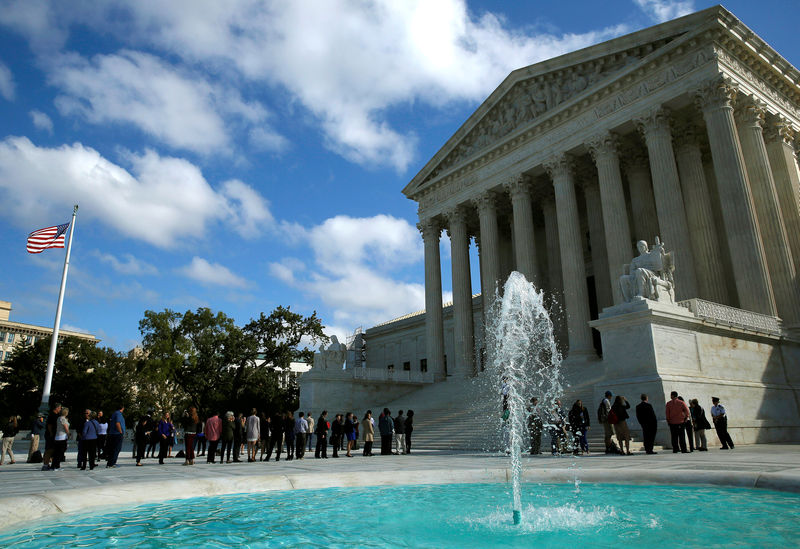By Nate Raymond
WASHINGTON (Reuters) - U.S. Supreme Court justices hearing a closely watched insider trading case indicated on Wednesday they were likely to make it easier for prosecutors to pursue such charges against traders, but questioned where to draw the line.
The appeal by Bassam Salman, an Illinois man convicted after making nearly $1.2 million trading on information that came from his brother-in-law, was the first insider trading case to come before the justices in two decades.
Because Congress never defined what constitutes insider trading, courts and regulators have been forced to supply the answer.
Several justices appeared skeptical about Salman's stance that he could not be convicted and later sentenced to three years in prison for trading on information about deals involving clients of Citigroup Inc (N:C), where the brother-in-law worked.
Alexandra Shapiro, Salman's lawyer, contended prosecutors in insider trading cases must prove that an alleged source of corporate secrets, like the brother-in-law, received a tangible benefit like cash in exchange for any tips.
A majority of the justices appeared ready to uphold Salman's 2013 conviction on conspiracy and securities fraud charges, asking why someone providing inside information as a no-charge gift to a family member could not be found to have benefited.
"You certainly benefit from giving to your family," Justice Anthony Kennedy said. "It ennobles you, and in a sense ... it helps you financially because you make them more secure."
Justice Elena Kagan suggested that adopting the position advocated by Salman, 57, would overturn decades of legal principle that had helped protect the markets' integrity.
"You're asking us essentially to change the rules in a way that threatens that integrity," Kagan said.
Prosecutors contend requiring proof of a tangible benefit would make pursuing insider trading cases tougher, potentially preventing charges against executives who tip friends or relatives without getting anything in return.
Despite appearing unlikely to back Salman's appeal, some justices suggested a line should be drawn clarifying when people can be prosecuted for disclosing corporate secrets.
"I'm not worried so much about this case," Justice Stephen Breyer said. "I am worried about line-drawing."
A ruling is due by June.
The appeal follows U.S. efforts to crack down on insider trading, resulting in Galleon Group founder Raj Rajaratnam's conviction in 2011 and a $1.8 billion settlement and plea deal in 2013 with hedge fund SAC Capital Advisors LP.
Prosecutors said Maher Kara, a Citigroup investment banker who was Salman's brother-in-law, provided tips about deals involving Citi clients to his brother, who in turn tipped Salman.
The Supreme Court in January agreed to hear Salman's appeal amid competing rulings by federal appeals courts in San Francisco, where his case was heard, and New York, where a wave of insider trading prosecutions has been pursued recently.
The New York-based 2nd U.S. Circuit Court of Appeals in 2014 overturned the conviction of two hedge fund managers, Todd Newman and Anthony Chiasson, and narrowed prosecutors' ability to pursue such cases in the process.
That court held that to be convicted, a trader must know the source received a benefit representing "at least a potential gain of a pecuniary (monetary) or similarly valuable nature."
The ruling forced prosecutors under Manhattan U.S. Attorney Preet Bharara to drop charges against 12 other defendants, out of 107 people charged since 2009. Bharara attended Wednesday's arguments.
Salman argued in light of that ruling, he could not be convicted because no proof existed his brother-in-law received anything beneficial in return.
The San Francisco-based 9th U.S. Circuit Court of Appeals rejected that argument, saying requiring such proof would allow insiders to tip relatives so long as they got nothing in exchange.
